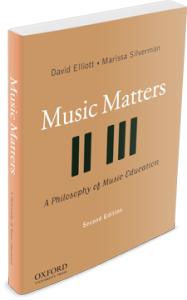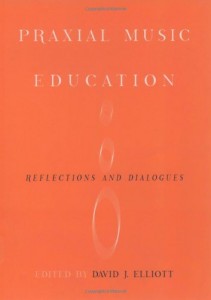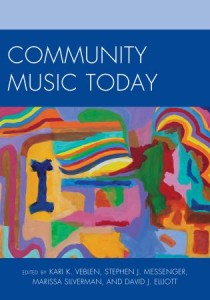What is the praxial philosophy of music education? Very briefly, the praxial philosophy offers an explanation of the nature and values of music. Based on this foundation, I go on to explain the nature and values of music education.
I suggest that “multidimensional” captures the essence of this philosophy. In Music Matters I argue for a multidimensional concept of music and musical works, a multidimensional concept of musical understanding, a multidimensional concept of music’s values in human life and a multiple approach to achieving these values. How? In short, by developing the musicianship of all music students (‘general’ music students and others) through the critically reflective and codependent actions of: performing-and-listening, improvising-and-listening, composing-and-listening, arranging-and-listening and conducting-and-listening. For the reasons I explain in Music Matters I suggest that music making (of all kinds) — and, of course, the rich kind of music listening required to make music well — should be at the center of the music curriculum.
Recorded music and “talk” about music have an important place in music teaching and learning (but not the central place). Recordings and information about music should be included in music teaching situations in such a way that they weave continuously in and out of a teacher’s ongoing efforts to teach students how to listen intelligently and make music well (to perform and improvise music and, whenever possible, to compose, arrange and conduct music).
I propose, also, that developing our students’ musical creativity (in all forms of music making) overlaps and extends the process of developing our students’ musicianship.
In summary, the praxial philosophy urges a comprehensive and reflective approach to music teaching and learning. It is based on detailed arguments for the view that: (a) musical works involve many kinds of meanings; (b) “musical understanding” involves many closely related kinds of thinking and knowing; and (c) that the significance of music in human life can be explained in terms of many important “life values.”
Accordingly, the aims of music education include the development of critically reflective listeners and musical amateurs who possess the understanding and motivation to give music an important place in their lives and the lives of others in their communities.
This philosophy recommends, further, that to achieve the values of music, music teachers ought to emphasize the interpretive nature of music as a performing and improvising art and that composing, arranging and conducting (all of which demand keen listening) should be taught frequently (and in direct relation) to a reasonable diversity of Musics (genres, or musical practices) during the course of our students’ musical education.



